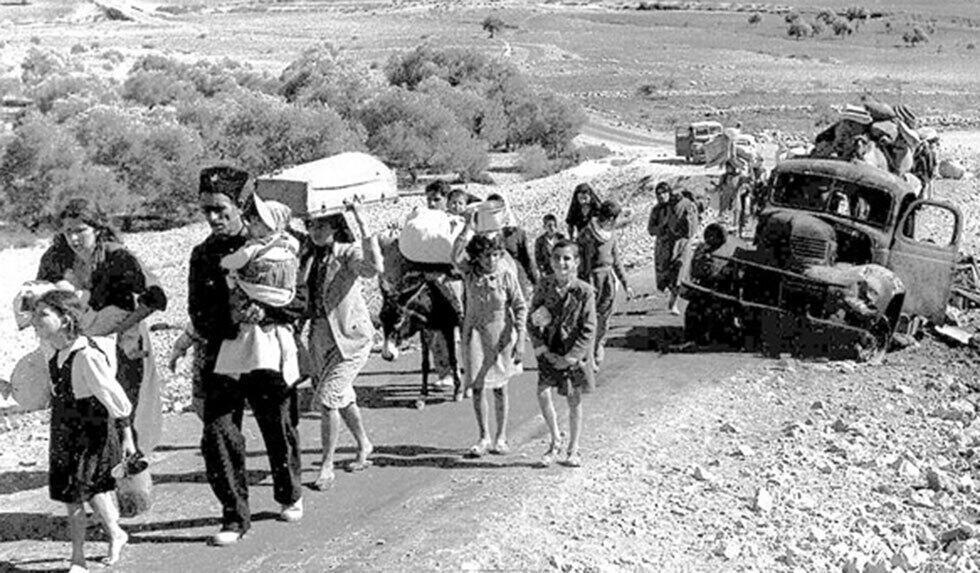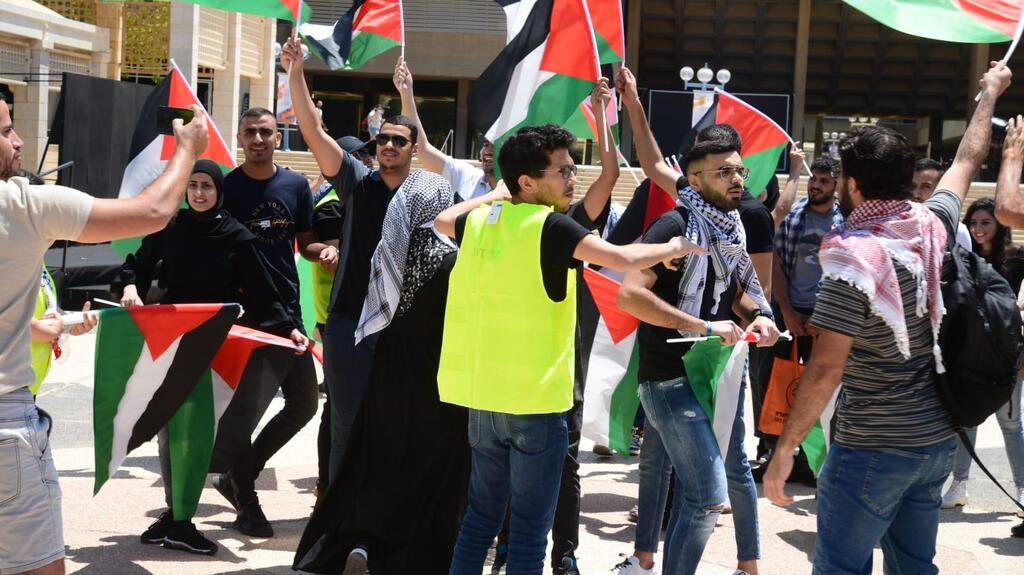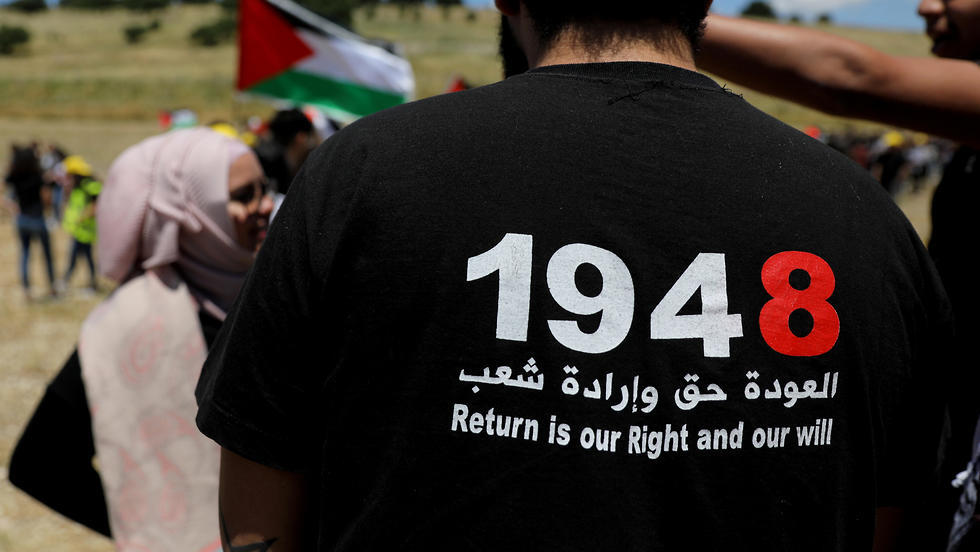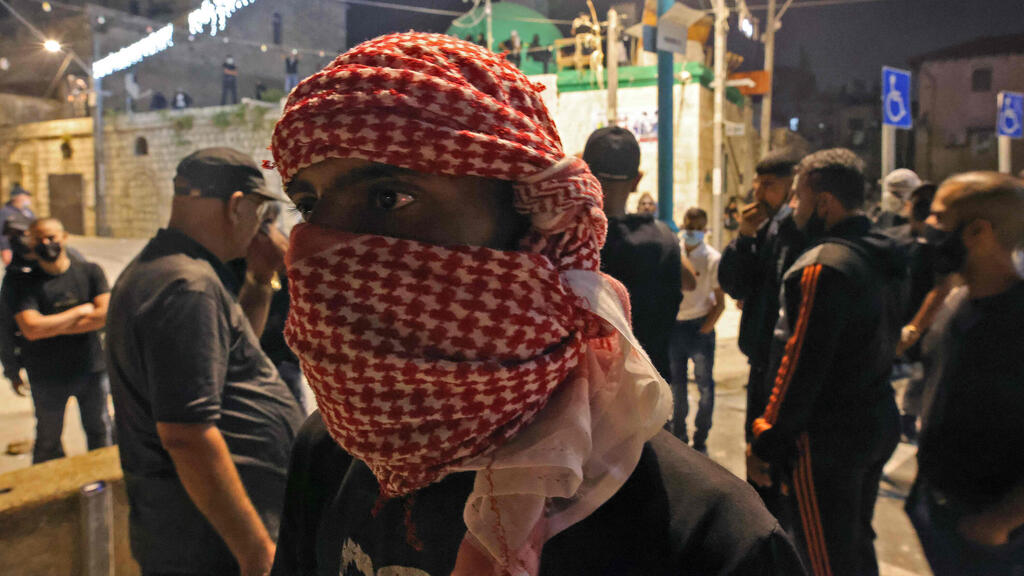The public outcry in the wake of an event staged to mark the Nakba at Ben Gurion University earlier this week, where Arab and Bedouin students waved Palestinian flags and chanted nationalistic slogans, highlighted once again how Israel's past haunts it to this day.
It also outlines the divide in narratives between Israel's Jewish and Arab communities, who are unable to conduct a meaningful conversation about the past and come up with a shared perception of the Israeli story.
The events around Israel's founding and the war that followed has produced collective memories that do not only compete with each other, but clash, causing real-time conflict.
As long as the Palestinian narrative is immortalized and nurtured in the territories under Palestinian Authority's rule and in the Gaza Strip, it is beyond the reach of the Israeli influence.
The years-long tension between Israel and the Palestinian governing bodies form the foundation of the one-dimensional collective Palestinian memory, which lays blame for the 1948 exodus squarely on the Israeli shoulders.
That narrative claims Israel planned an ethnic cleansing of its territory and later tried to erase its memory, while the victims seek retribution, compensation and an apology along with a reversal of history by a return of refugees from their exile.
4 View gallery


Palestinian refugees in northern Israel during the War of Independence
(Photo: Fred Csasznik)
The deeper problem associated with that 'memory' of the Nakba is Israeli Arabs - who ascribe fully to the Palestinian narrative - linking the events of 1948 with the alleged discrimination of Arabs by Israel today.
This creates a sense of alienation from the state and its Jewish population, and prevents many from participating fully in the Israeli society.
Surveys conducted over the past 20 years consistently show that Arab citizens see the Jewish Israelis as responsible for the catastrophe that befell their people.
As Israel begins its 75th year of existence, it is now a mature and robust enough country that can take on a serious discussion and a profound study of the events surrounding its foundation, and reject attempts to erase or silence its history.
But both communities must conduct a balanced, critical and open debate, not only about what led to the escape or expulsion of hundreds of thousands of Arabs, but also about the responsibility that the Arab leadership bares for this: including the rejection of the UN partition plan in 1947 and the declared intent by Arab regimes and local Palestinians to annihilate the Jewish community.
That declaration manifested itself in the massacres carried out by Arabs against Jews in the decades and years leading up to the establishment of Israel.
The tendency of Palestinians has been to cherry pick historical events to suit their narrative. They have for the most part chosen to remember the suffering caused by the war and its immediate aftermath, and isolate themselves from the wider context.
But, the fate of Palestinians at the time cannot be seen independently from the decisions made by their leaders.
Israel is at a precarious moment in its history, and especially in the relations between its Jewish and Arab communities.
Only one year has passed since the intercommunal riots of May 2021 that engulfed Israel's mixed cities in the most serious eruption of violence between the two sectors of population in decades.
At the same time, an Arab political party is for the first time participating in the ruling coalition and advancing the interests of its sector in decisions made by the government.
Both communities can take a deep dive into the conflict in order to promote some understanding and map out a framework for coexistence.
The past cannot be forgotten or forsaken as it continues to haunt both societies. It is vital to conduct a serious review of the past, but one that is balanced and free from the restrictive perceptions of events, so that historical justice can finally be had by both communities.
Michael Milstein is the Head of the Palestinian Studies Forum at the Moshe Dayan Center for Middle Eastern and African Studies





